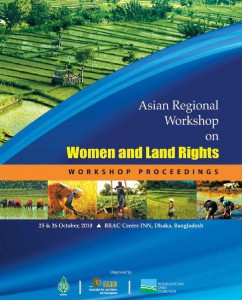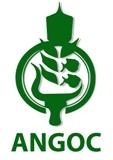Asian Regional Workshop on Women and Land Rights: Workshop Proceedings
Resource information
Date of publication
September 2010
Resource Language
License of the resource
Last 25-26 October 2010, the Association for Land Reform and Rural Development (ALRD), the Asian NGO Coalition for Agrarian Reform and Rural Development (ANGOC) and the International Land Coalition (ILC) jointly organised this Regional Workshop on Women and Land Rights, as a response to the urgent need to cast the spotlight on women and their access to and ownership of land. The objectives of the workshop were identifying strategic areas and developing a road map for 2011-2012, to strengthen ILC Asia’s work on women’s land rights.
Geographical focus


